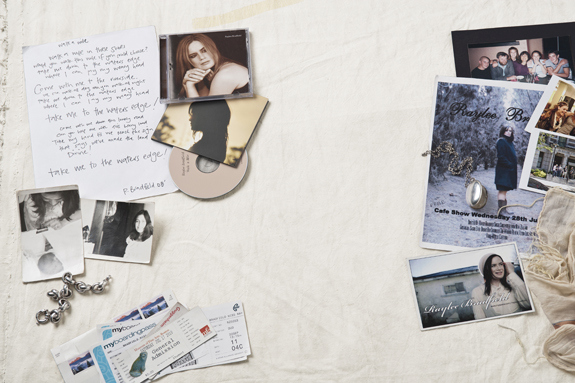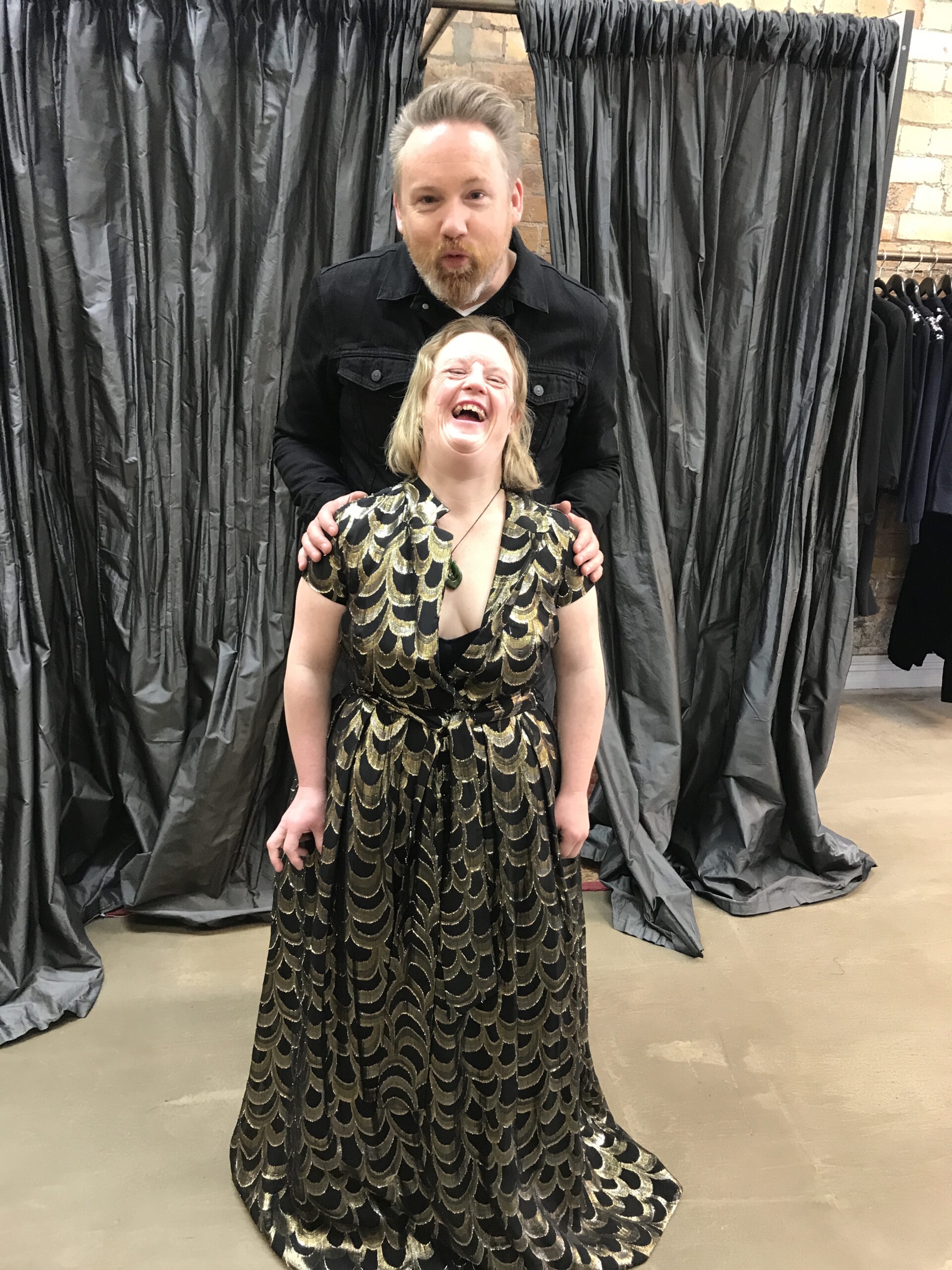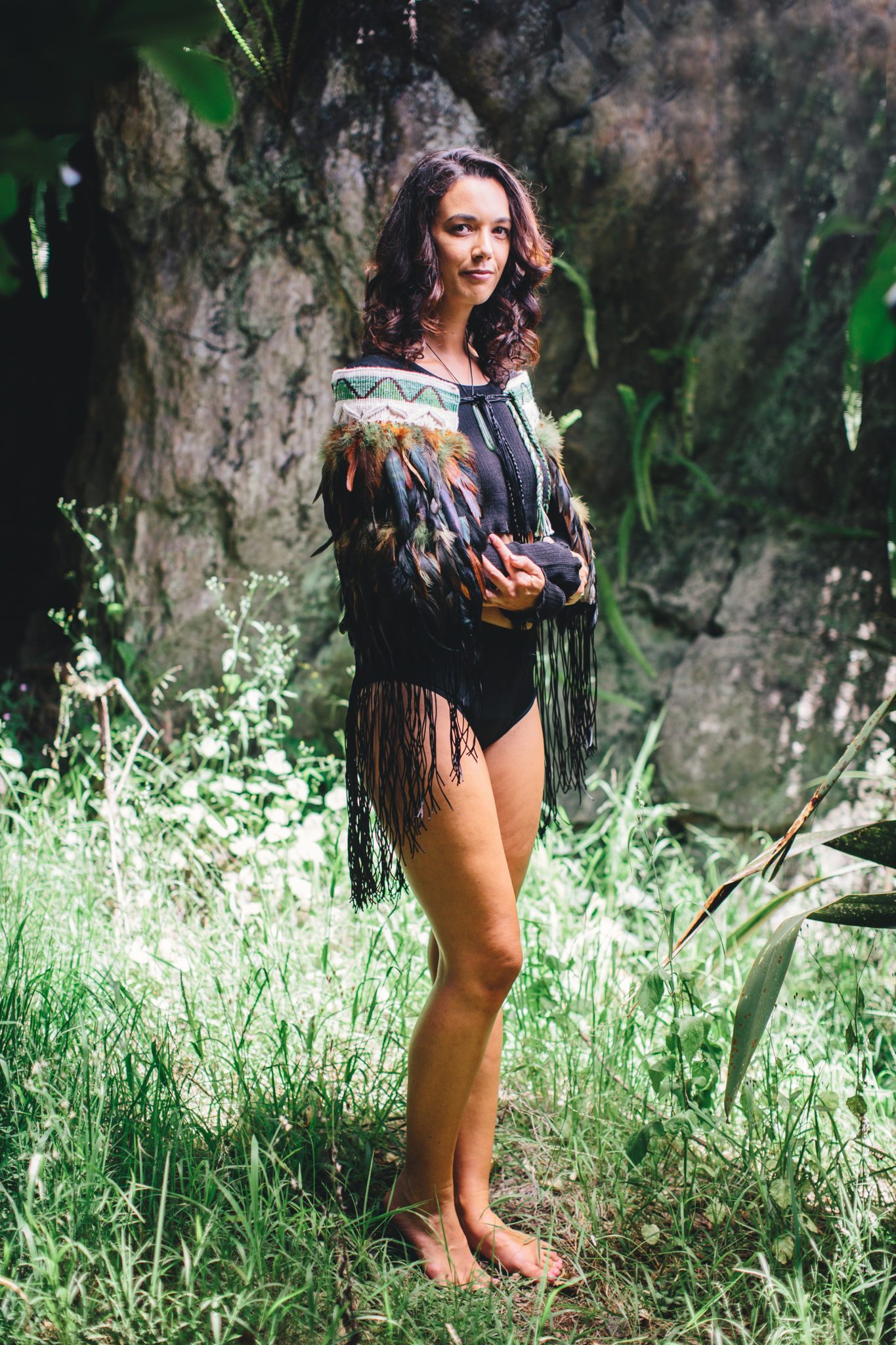Four people who see the future as a blank canvas rather than a template to follow.
I’ve always thought success is about finding more umbrellas than you lose. (Yes, sometimes it’s all about the tiny triumphs). There are many other definitions of success – corner office, conspicuous consumption, family time – and we’re generally freer than previous generations to aim for our chosen goals. But what does success truly mean to you?
We’re not just talking about a promotion or a house-bach-boat combo – though if that’s really what makes you happy, that’s okay. Rather than success being about coming first or ‘having it all’, we’re advocating a gentler, more personal definition.
Maybe you want to set up a self-sustaining business and go volunteering in South America, or make time to finally master that musical instrument in the corner of the room. As the writer Flannery O’Connor once put it, “Accepting oneself does not preclude an attempt to become better.” Here’s a guide to help you get started on the slow road to happiness.
Speaking about success in a 2009 TED talk, popular philosopher Alain de Botton said, “A lot of the time, our ideas of what it would mean to live successfully are not our own, they’re sucked in from other people.” TV, advertising and marketing are also “hugely powerful forces that define what we want and how we view ourselves”.
Often, we’re just setting ourselves up for failure. “You can’t have it all. You can’t. So any vision of success has to admit what it’s losing out on,” he said. “I’m suggesting not that we should give up on our ideas of success, but we should make sure they are our own.
Because it’s bad enough not getting what you want, but it’s even worse to have an idea of what it is you want, and find out at the end of the journey that it isn’t what you wanted all along.” Visit here to watch his TED talk.
The work you do while you
procrastinate is probably the work you
should be doing for the rest of your life
–Jessica Hische, designer and illustrator

Who are you?
It’s not just a song by The Who, but also what you need to ask yourself. The New Year can allow us precious breathing space, with time to identify what we want to change in the coming year. This year, try taking a couple of steps back before the busyness and routine start up again. The process of defining success involves honing in on your core values and beliefs. From there, you’ll know where to direct your energy.
Viktor Frankl is a famous Austrian neurologist and psychiatrist, who after surviving the Holocaust death camps wrote the bestselling book, Man’s Search for Meaning. Viktor suggests that like happiness, success cannot be pursued. “It must ensue, and it only does so as the unintended side effect of one’s personal dedication to a cause greater than oneself or as the by-product of one’s surrender to a person other than oneself.”
Taking time to reassess means that, now and later in life, you’ll feel more proud and fulfilled for having done what you care about. Try taking pen and paper to a quiet place and answer the questions below. The good news is that it’s never too late to reassess where you’re heading. As Viktor puts it, “Live as if you were living already for the second time and as if you had acted the first time as wrongly as you are about to act now!”
You may at times experience self-doubt and scepticism from others. But when you’re tuned in to your authentic self and act on your beliefs, fulfillment and happiness begin to fall into place. Now that’s success!

LIFESTYLE
Changing our lives usually happens slowly. We like the idea of a lightning-bolt epiphany catapulting us into a new reality – but it mostly doesn’t work like that.
Cally McWha, 55, started on her slow road to happiness ten years ago. The general-practice lawyer, in partnership with two others, went out on her own in 2002 for lifestyle flexibility. Three family illnesses strengthened her belief that life is to be enjoyed, not devoted to work.
In 2007, Cally and partner Lloyd Williams built a cottage on friends’ land in Central Otago. In 2009 they bought the first of several student rental properties in Dunedin – “long-term security” – and Cally reduced her hours.
Now, they divide their time between Auckland and Dunedin; Lloyd’s job also enables him to work remotely. In Dunedin, Lloyd is the builder, Cally the painter-administrator. “We have a passion for old buildings. We’ve just finished a [two-year] project where we bought a doctor’s residence, which was basically derelict,” Cally says.
They camped in the house while restoring it.
The two often play together (Cally the violin, Lloyd the double-bass) in Dunedin’s Southern Sinfonia orchestra. The money will never compare to a lawyer’s hourly rate, but the rewards go beyond income. “We can look across the orchestra and see each other. We trot off to rehearsal of an evening together – that’s a real delight,” she says.
“I’m a jack of all trades,” Cally adds. “I see that as being successful, having an ability to tackle all sorts of things in life.”
The trickiest decision is when to hang up her robes. “That’s not to do with income, in fact, it’s to do with ‘I am a lawyer’. It’s part of what I am,” she says.
Living simply, with honesty, and being with Lloyd overrule all. “Our ideal life is to be together, doing lots of different things, not to retire and not to end up in a rut.”
• What are your guiding principles, the values and beliefs most important to you? (Remember, fun is a perfectly valid answer).
• What priorities currently take up your attention?
• What changes do you need to make to live more closely with your values?
• What, if you lost it, would you miss most?
• Envisage how you’ll feel if you keep going down the same path you’re on now. Will you be happy with what you’re achieving in one year’s time? 10? 30? At the end of your life?
• If you uncover regrets, consider what you do want to achieve – and start making it happen.

CREATIVITY
Even when you love something from an early age, it’s still challenging to stay focused. Raylee Bradfield, 36, has always been immersed in music. “My mother was Maori, we grew up in church, so there was music everywhere,” she says of her Catlins childhood. “It wasn’t a career option, it was just what everyone did.”
Serendipity favoured Raylee when touring musicians heard her sing and suggested she apply for Auckland’s Excel School of Performing Arts. “I was only 19, I didn’t really know what I wanted to do – or what I could do, more to the point,” she says.
So she headed north for two years of study, majoring in vocal work. After, Excel’s then-principal Jeff Todd said he wanted to mentor her as a vocal tutor. As well as teaching at Excel, the past eight years have seen Raylee release two EPs, study at Berkeley College of Music’s summer school, organise her church’s music, and more.
Not afraid of hard work, Raylee’s also clear on her values: her Christian faith, her family’s importance, and being authentic as a person and in her music. Though she enjoys passing on knowledge to students, next year she’s returning to university to finish the final year of her music education degree, to “create space for my own music”.
She’ll miss the regular income. “It gets tiring when you’re always wondering, ‘Man, am I going to have enough for rent?’” she says. Yet she’s holding fast.
“It’s great when you sing the way you’ve wanted to, or that you’ve been singing towards,” she says. “You can’t wait for someone else to tell you that you are good at what you do, or to feel proud of what you’ve done. I think that’s really dangerous, I think you need to know yourself. You have to love what you do, don’t you? Or else I don’t think it’s very life-giving.”
In short, do what makes your heart sing.
 CHARITY
CHARITY
Success doesn’t always mean shifting your focus away from work.
Kim Larking, 48, had founded Clyne Model Management and in 2011 was close to realising a long-held dream of opening a US model agency. He was walking out the door in New York to see his first four clients when he saw TV footage of the September 11 attacks in progress.
The world was changing, he realised, and so was he. A month prior, he lay awake in the wee hours and asked himself if he would be happy with what he’d achieved. The answer was ‘No!’ “I realised that it was all about me.” Considering what would be meaningful, it occured to Kim that the “greatest thing we can do as human beings is to help others.”
Three weeks later he returned to Auckland, followed by two years of brainstorming with friends to conceptualise Vision for Humanity (VFH). The charity aims to build “a successful planet where the attributes of love, forgiveness, compassion, tolerance and integrity form the basis of every human interaction and endeavour”.
The first step was launching Vision Products and its Superfood Skin Care products, to fundraise for other initiatives and raise awareness. That range was eight years in development, and only last year did Kim sell Clyne Model Management to concentrate on VFH.
Success to Kim is a work in progress, and not just about himself – though no man is an island. Time with his two children is important, as is finding a “life partner who is looking in the same direction”. Today he doesn’t feel like he has anything to prove, “just more and more to gain”. Not a bad place to be.
Surely all art is the result of one’s having been in danger, of having gone through an experience all the way to the end, to where no one can go any further –Rainer Maria Rilke, poet
 FAMILY
FAMILY
Sometimes, major life events force us to decide what we value most.
Christchurch-based Gillian Langman, 60, had already been through upheavals before the earthquakes came along. Her nephew’s death in 2003 was the first domino to fall. “I had a fleeting thought, ‘This young man’s done a lot more, travelled a lot more than I did.’ It just sort of sat there in my head.”
Her mother died in 2006, and her long-term relationship ended in 2007. Home had been her focus, first raising son Damian, now 33, then nesting. “I’d always wanted to own a home and renovate it.”
Keeping that house became more financially difficult by herself, and in 2008 she sold. Its value had dropped significantly due to the global economy. “Which was probably another enlightening thing for me, walking away with no money. I realised that I’ve still got my health, my family and friends,” Gillian says. “I don’t want the responsibility of property ever again.”
Being a renting convert, Gillian avoided larger financial loss when the second quake hit. “There were a lot of broken [family] possessions, which was quite upsetting,” she says. “Then I thought, ‘Well, these are things that remind you of those people, but the memories are always inside you.’” Hearing her cousin’s daughter-in-law had died in the CTV building confirmed her determination to treasure family and friends.
Now she works as a full-time administration assistant, makes a bigger effort to see her girlfriends, and saves for an annual trip to France to see her son and “beautiful grandson Leo”.
Success to Gillian isn’t about possessions or money; it’s about health, happiness and her son. Regrets – she has a few, but none that keep her awake at night. Otherwise she wouldn’t be where she is now.
Live as if you were living already for
the second time and as if you’d acted
the first time as wrongly as you are
about to act now!
–Viktor Frankl





